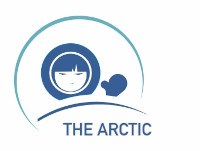International Panel on Climate Change addressed the higher temperatures to be affecting all aspects of northern circle. Climate change has been having a great impact on sea ice extent in the Arctic, opening new shipping routes and in the same time the gross of opportunities for trans – arctic commercial enterprises.
However, melting ice and rising level of the oceans also started to become a threat to indigenous human population in the northern hemisphere, disturbing their aboriginal ways of life, dependent on atmospheric circulations.
The statistics provided by IPCC state, that in the most Arctic states, excluding highly industrialized parts, water use has significantly increased over the past twenty years. Constantly growing Arctic human population, living different, more modern lifestyle and with developing economy would be likely to extend the use of water supply.
Being well know, water is the essential to the life on the planet and the prosperity of its people. Increasing evidences of climate change, constant population growth combined with urbanization and evolving needs for energy sources, are putting a great pressure on the global water resources. The effects of climate change are particularly and significantly felt when considering the future of water security.
The effects on climate change can be clearly visible in all parts of the Arctic. They occur as reduced snow cover, widespread melting of ice, and changes in soil moisture and runoff and precipitation patterns. What is more, water supplies stored in the glaciers and snow cover in the high Arctic are predicted to be shrinking in the coming years what means that the water availability for the remote indigenous communities during the dry and warm summer periods, would be reduced.
Scientists predict that the water quality would deteriorate as higher temperatures allow many forms of water pollution. The rise of sea level would dissolve organic carbon causing the decrease of fresh, ground water availability for populations and ecosystems of Arctic coastal territories.
Together with water security, the issue of climate change greatly affects all aspects of food security in the Arctic. Food availability and accessibility, food utilization and food systems stability are the four categories recognized by Food and Agriculture Organization of the United Nations to be threatened by the changing climate.
Indigenous Arctic communities, strongly dependent on traditional ways of gathering food supplies are at the first place affected by the global warming. Raising temperatures do not allow for all activities linked to hunting and harvesting of Arctic animals. Fishing is likely to be affected by the climate change as the warmer water ecosystem allow the development of living resources which have been never seen before in the northern hemisphere.
Climate change has its impact on animal growth and its migration, land use and production. Even though, the Arctic land is of very little use for agricultural activities, the food production strongly depends on atmospheric changes. Being able to estimate the location of Arctic animals used to be of a great use for indigenous hunters.
It was proven that because of the melting ice, longer summer periods and shorter time of vegetation, animals start to migrate or their location is difficult to verify.
Various Arctic plants are used by the indigenous peoples not only as food but also as medicine, what makes a warming planet a serious threat to cultural, traditional values of northern populations. On the other hand, with melting ice and opening of new shipping routes, food distribution among remote Arctic communities, become easier and more sufficient.
Climate change has been occurring as the major threat to indigenous people health. Unknown diseases seem to touch remote northern populations. The cost of global warming brings the new insects and bacteria. Longer summer periods and sharper sun cause gross of skin diseases, even a cancer.
There are still major fields of uncertainty with regards to climate change and water studies. Understanding and attribution of all the climatic changes and their impact on the water and food security, occurs as a global challenge. Intergovernmental Panel on Climate Change involves the governments of all Arctic states to participate in decision making process with regards to climate change mitigation challenges. There is an ongoing need for all Arctic social and political powers to contribute to the problem as well as to develop mechanism for its better understanding.
Source:Climate Change and Water - IPCC Technical Paper VIIntergovernmental Panel on Climate Change - IPCC







